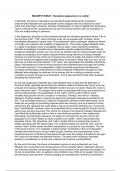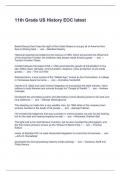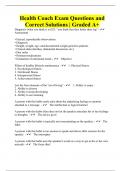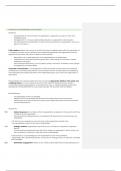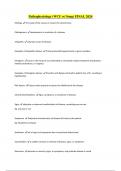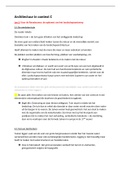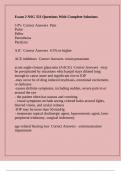MACBETH ESSAY : Deception (appearance vs reality)
In Macbeth, the theme of deception is presented through almost all the characters,
predominantly Macbeth and Lady Macbeth as they disguise their true desires for power
under their seemingly innocence. Perhaps, Shakespeare is trying to highlight the destructive
nature of deceit and its consequences but also how deceit tampers with our perception of
trust and reality leading to paranoia.
In the beginning, deception is first presented through the witches/supernatural where “Fair is
foul and foul is fair”. "Fair" which connotes purity can be equated with “foulness” which
immediately disrupts the natural order. The paradoxical nature challenges traditional notions
of morality and questions the reliability of appearances. This phrase triggers Macbeth down
in a spiral of deception which is escapable only by death. Upon hearing the prophecy,
Macbeth immediately is tempted and contemplates regicide juxtaposing Banquo’s rational
scepticism. Macbeth’s actions are more driven by emotion than by rational thought where he
accepts the prophecy as his destiny despite witches being infamous for being unreliable
because it is what he truly wants so he ignores any sense of reality and dreams of the future.
His inner turmoil is metaphorically illustrated when he exclaims “Stars hide your fires, let not
light see my black and deep desires”. The “stars” were associated with celestial order/divine
justice, representing an external moral authority which Macbeth fears will judge him harshly
for his dark intentions. The juxtaposition of light (connoting purity/truth) and darkness (
connoting evil/deception) emphasises the moral ambiguity of Macbeth's thoughts but also
Macbeth acknowledges the darkness of his desires and he is willing to embrace moral
corruption in pursuit of power as a transaction. It’s his free will which brings forth deception,
disrupting the natural order.
As the play progresses, Macbeth and Lady Macbeth have to deal with the aftermath of
Duncan’s death, gradually plummeting into madness whilst simultaneously having to put up
a facade of innocence. Right after Macbeth murders Duncan, he needs “Neptune's ocean to
wash this blood clean”. The imagery of the water is associated with purity and memories but
also its extensiveness; the juxtaposition of the “water” and the sinful motif of “blood”
amplifies his guilt and how his corruption is infectious. Perhaps, the motif of “washing”
alludes to Christian baptism, implying his want to be spiritually cleansed and purified of his
sins. This immediate response is symbolic of Macbeth’s gradual mental deterioration as he
deals with the weight of committing regicide whilst also having to put up a facade of a kind,
caring king. But, gradually the mask starts to slip as he becomes infamous as a “tyrannical”
king. Lady Macbeth, however, does not immediately feel an intense guilt for Duncan but the
guilt is slow and all-consuming. This marks the change in the dynamic between Macbeth and
Lady Macbeth as Macbeth starts to take a more dominant position in their relationship,
dismissing Lady Macbeth’s presence. He begins to command her but also mirrors her
language as he orders “Make our faces vizards to our hearts ” which exacerbates their
deceptive nature. The imperative verb “make” implies that he is warping their sense of
reality, tampering with the natural order. The contrast between the external “face” and the
internal “heart” further shows his skilful manipulation to conceal his true emotions. The use
of the plural pronoun "our" suggests a shared sense of complicity in the act of deception,
making them almost bound to each other by guilt. However, the consequences of their
deceptiveness are not limited to themselves but also how the entirety of Scotland is plunged
into chaos as trust fades and alliances fracture. The great chain of being is disrupted,
leading to a breakdown in society and a descent into violence and bloodshed.
By the end of the play, the theme of deception reaches its end as Macbeth and Lady
Macbeth are consumed by the consequences of their deceitful actions. Macbeth's descent
into madness becomes increasingly evident as he becomes more paranoid and ruthless. As
he has an existential crisis, he adopts a more nihilistic view of life as he repeats “tomorrow,
and tomorrow, and tomorrow” almost accepting his inevitable fate of death as punishment.
In Macbeth, the theme of deception is presented through almost all the characters,
predominantly Macbeth and Lady Macbeth as they disguise their true desires for power
under their seemingly innocence. Perhaps, Shakespeare is trying to highlight the destructive
nature of deceit and its consequences but also how deceit tampers with our perception of
trust and reality leading to paranoia.
In the beginning, deception is first presented through the witches/supernatural where “Fair is
foul and foul is fair”. "Fair" which connotes purity can be equated with “foulness” which
immediately disrupts the natural order. The paradoxical nature challenges traditional notions
of morality and questions the reliability of appearances. This phrase triggers Macbeth down
in a spiral of deception which is escapable only by death. Upon hearing the prophecy,
Macbeth immediately is tempted and contemplates regicide juxtaposing Banquo’s rational
scepticism. Macbeth’s actions are more driven by emotion than by rational thought where he
accepts the prophecy as his destiny despite witches being infamous for being unreliable
because it is what he truly wants so he ignores any sense of reality and dreams of the future.
His inner turmoil is metaphorically illustrated when he exclaims “Stars hide your fires, let not
light see my black and deep desires”. The “stars” were associated with celestial order/divine
justice, representing an external moral authority which Macbeth fears will judge him harshly
for his dark intentions. The juxtaposition of light (connoting purity/truth) and darkness (
connoting evil/deception) emphasises the moral ambiguity of Macbeth's thoughts but also
Macbeth acknowledges the darkness of his desires and he is willing to embrace moral
corruption in pursuit of power as a transaction. It’s his free will which brings forth deception,
disrupting the natural order.
As the play progresses, Macbeth and Lady Macbeth have to deal with the aftermath of
Duncan’s death, gradually plummeting into madness whilst simultaneously having to put up
a facade of innocence. Right after Macbeth murders Duncan, he needs “Neptune's ocean to
wash this blood clean”. The imagery of the water is associated with purity and memories but
also its extensiveness; the juxtaposition of the “water” and the sinful motif of “blood”
amplifies his guilt and how his corruption is infectious. Perhaps, the motif of “washing”
alludes to Christian baptism, implying his want to be spiritually cleansed and purified of his
sins. This immediate response is symbolic of Macbeth’s gradual mental deterioration as he
deals with the weight of committing regicide whilst also having to put up a facade of a kind,
caring king. But, gradually the mask starts to slip as he becomes infamous as a “tyrannical”
king. Lady Macbeth, however, does not immediately feel an intense guilt for Duncan but the
guilt is slow and all-consuming. This marks the change in the dynamic between Macbeth and
Lady Macbeth as Macbeth starts to take a more dominant position in their relationship,
dismissing Lady Macbeth’s presence. He begins to command her but also mirrors her
language as he orders “Make our faces vizards to our hearts ” which exacerbates their
deceptive nature. The imperative verb “make” implies that he is warping their sense of
reality, tampering with the natural order. The contrast between the external “face” and the
internal “heart” further shows his skilful manipulation to conceal his true emotions. The use
of the plural pronoun "our" suggests a shared sense of complicity in the act of deception,
making them almost bound to each other by guilt. However, the consequences of their
deceptiveness are not limited to themselves but also how the entirety of Scotland is plunged
into chaos as trust fades and alliances fracture. The great chain of being is disrupted,
leading to a breakdown in society and a descent into violence and bloodshed.
By the end of the play, the theme of deception reaches its end as Macbeth and Lady
Macbeth are consumed by the consequences of their deceitful actions. Macbeth's descent
into madness becomes increasingly evident as he becomes more paranoid and ruthless. As
he has an existential crisis, he adopts a more nihilistic view of life as he repeats “tomorrow,
and tomorrow, and tomorrow” almost accepting his inevitable fate of death as punishment.

